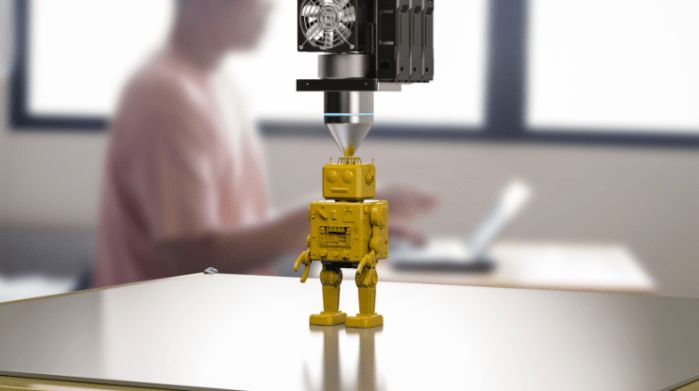The world of 3D printing services has experienced significant growth and diversification in recent years. As this technology has become increasingly integral to various industries, the need for established standards and certifications has emerged to ensure quality, reliability, and safety in the 3D printing process. In this article, we will explore the various certifications and quality standards relevant to 3D printing services, shedding light on how these frameworks contribute to the overall quality and trustworthiness of 3D printed products.
ISO 9001: Quality Management System
ISO 9001, developed by the International Organization for Standardization (ISO), is one of the most widely recognized quality management standards worldwide. While it is not specific to 3D printing, many 3D printing service providers adopt ISO 9001 to establish and maintain robust quality management systems.
Under ISO 9001, organizations are required to meet a set of criteria and demonstrate their ability to consistently provide products or services that meet customer and regulatory requirements. The standard encompasses various aspects of quality management, including customer focus, leadership, involvement of people, process approach, and continuous improvement. By implementing ISO 9001, 3D printing service providers can enhance their overall operational efficiency and customer satisfaction.
ISO/ASTM 52900: Additive Manufacturing Standards
To address the unique challenges and complexities of additive manufacturing, ISO and ASTM International jointly developed the ISO/ASTM 52900 series of standards specifically for additive manufacturing technologies, including 3D printing. These standards cover a wide range of topics, such as terminology, design, process control, and test methods related to additive manufacturing.
One key standard in this series is ISO/ASTM 52900-1, which provides a comprehensive terminology and classification system for additive manufacturing processes, materials, and terms. By establishing a common language and framework, these standards facilitate communication, collaboration, and consistency within the 3D printing industry.
ISO 13485: Quality Management System for Medical Devices
For 3D printing service providers operating in the medical and healthcare sectors, compliance with ISO 13485 is crucial. ISO 13485 specifies requirements for a quality management system specifically tailored to the design, development, production, and servicing of medical devices.
Medical devices produced using 3D printing technology must meet stringent quality and safety standards to ensure patient safety and regulatory compliance. ISO 13485 provides a structured framework to help 3D printing service providers in the medical field navigate the complex regulatory landscape and maintain the highest levels of quality and traceability.
AS9100: Quality Management System for Aerospace
The aerospace industry demands exceptionally high-quality and precision components, making the AS9100 standard a critical certification for 3D printing service providers serving this sector. AS9100 is an extension of ISO 9001 with additional requirements tailored to the aerospace industry.
Service providers seeking AS9100 certification must adhere to strict quality control measures, traceability, and documentation standards. This ensures that 3D printed aerospace components meet the rigorous safety and performance requirements of the industry.
NADCAP: Special Processes Certification
In aerospace and other industries with stringent quality requirements, the NADCAP (National Aerospace and Defense Contractors Accreditation Program) certification is highly regarded. NADCAP focuses on the accreditation of special processes, including heat treating, welding, and non-destructive testing, which are relevant to 3D printing when post-processing and finishing are involved.
3D printing service providers may seek NADCAP accreditation for specific processes related to their services. This certification demonstrates compliance with industry-specific quality standards and is often a requirement for working with aerospace and defense contractors.
FDA 3D Printing Guidelines for Medical Devices
The U.S. Food and Drug Administration (FDA) has issued guidelines for the use of 3D printing in the production of medical devices. While these guidelines are not certifications in the traditional sense, they provide valuable regulatory guidance for manufacturers and service providers in the healthcare sector.
FDA guidelines cover various aspects of 3D printing in the medical field, including design considerations, material selection, quality control, and post-processing. Compliance with these guidelines is essential for ensuring that 3D printed medical devices meet safety and efficacy requirements.
UL 3400: Additive Manufacturing Centers
UL 3400 is a safety certification developed by Underwriters Laboratories (UL) specifically for additive manufacturing centers. This certification focuses on the safety of the entire 3D printing process, including equipment, materials, and operations.
UL 3400 evaluates the safety protocols, fire prevention measures, ventilation, and material handling procedures within additive manufacturing facilities. It is particularly relevant for 3D printing service providers aiming to ensure the safety of their operations and facilities.
Material-Specific Certifications
In addition to the general standards mentioned above, specific certifications may be required for certain materials used in 3D printing, especially in industries where material properties are critical. For instance:
– ASTM F2924: This standard covers the characterization and verification of 3D printing powders used in the production of medical implants.
– ISO 17296-3: Part of the ISO 17296 series, this standard pertains to the use of titanium alloy powders for additive manufacturing and is crucial for ensuring the quality and safety of 3D printed titanium components.
– UL 746D: This UL standard evaluates the performance of materials used in 3D printing with regard to their electrical properties, flammability, and resistance to environmental factors.
Conclusion
Certifications and quality standards play a vital role in ensuring that 3D printing services consistently deliver products of the highest quality, reliability, and safety. These certifications encompass various aspects, including quality management systems, process-specific standards, industry-specific requirements, and material qualifications.
For 3D printing service providers, pursuing and achieving relevant certifications not only demonstrates their commitment to quality but also opens doors to new markets and industries that require compliance with these standards.
Clients and end-users can have greater confidence in the quality and reliability of 3D printed products when they are produced by certified service providers who adhere to recognized industry standards and best practices. As the 3D printing landscape continues to evolve, staying abreast of the latest certifications and standards is essential for maintaining a competitive edge and ensuring the trust of customers across diverse sectors.



